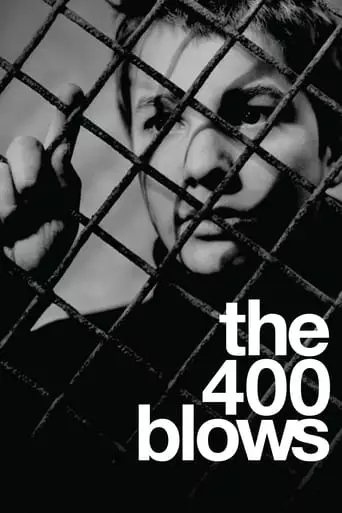
Les quatre cents coups (1959) Watch Online Free
For young Parisian boy Antoine Doinel, life is one difficult situation after another. Surrounded by inconsiderate adults, including his neglectful parents, Antoine spends his days with his best friend, Rene, trying to plan for a better life. When one of their schemes goes awry, Antoine ends up in trouble with the law, leading to even more conflicts with unsympathetic authority figures.
The 400 Blows (French: Les Quatre Cents Coups), directed by François Truffaut, is a landmark film in the French New Wave. It tells the story of Antoine Doinel, a young boy growing up in post-war Paris. Struggling with neglect from his self-absorbed mother and indifferent stepfather, Antoine finds himself caught in a cycle of minor mischief and rebellion. His troubled relationship with authority figures, such as his teachers and parents, leads to him being labeled a delinquent. His attempts to find freedom—whether by skipping school or running away—ultimately end in his confinement in a juvenile detention center. The film ends with a famous shot of Antoine looking out toward the ocean, symbolizing his search for a sense of escape or hope.
The 400 Blows is often celebrated for its emotional depth and innovative cinematic techniques. Truffaut, in his directorial debut, combines realist storytelling with a tender exploration of adolescence. The film’s portrayal of Antoine as a misunderstood and neglected child speaks to broader themes of societal expectations, family dynamics, and the consequences of punitive systems. Through Antoine’s eyes, the audience witnesses the harshness of the adult world—one that fails to understand the complexities of youth. Truffaut uses long takes and fluid camerawork, capturing both the intimacy of Antoine’s experiences and the oppressive environment around him.
Antoine’s relationship with his family is central to the film’s emotional weight. His mother, played by Claire Maurier, is cold and detached, while his stepfather’s indifference exacerbates his sense of alienation. The portrayal of his troubled home life is a subtle critique of the social norms of 1950s France, where the welfare of children was often subordinated to adult concerns. His escape into petty crime and his eventual incarceration expose the failures of the justice system and the lack of compassion for vulnerable youths.
After watching The 400 Blows, you may feel a profound sense of empathy for Antoine Doinel. The film’s honest portrayal of his struggles will leave you reflecting on the nature of childhood, identity, and the harsh realities of growing up. You may experience sadness over the injustices Antoine faces but also a sense of awe at his quiet resilience. The film’s emotional complexity ensures that it will linger with you long after the credits roll, making you consider the broader societal and personal factors that shape the lives of young people.
In the end, the film’s mixture of melancholy and hope provides a bittersweet but uplifting exploration of adolescence. Whether you relate to Antoine’s personal experiences or are moved by the universal themes of the film, The 400 Blows will leave you thinking deeply about the challenges of growing up and the power of cinema to capture those emotions.
